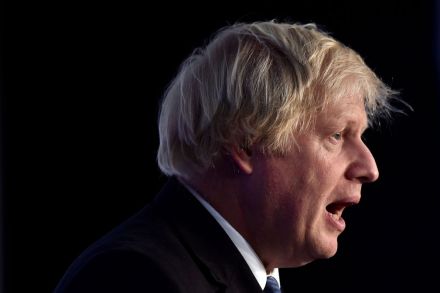What does a leaked recording reveal about Boris’s Brexit stance?
I’ve been sent a recording of a presentation made on Tuesday by the great champion of Brexit, Boris Johnson, over breakfast in Amsterdam. He was talking to “chief risk officers” of financial firms at an event called RiskMinds International, that was sponsored by, among others, the huge accounting firm PWC and the management consultancy McKinsey. Days before that big vote on Theresa May’s version of Brexit, which Johnson passionately opposes, he talks about the importance of politicians, like his hero Churchill, taking a stand against the establishment and “gambling” – making a “giant bet” – to do the right thing. I am not going to comment much on what he



















